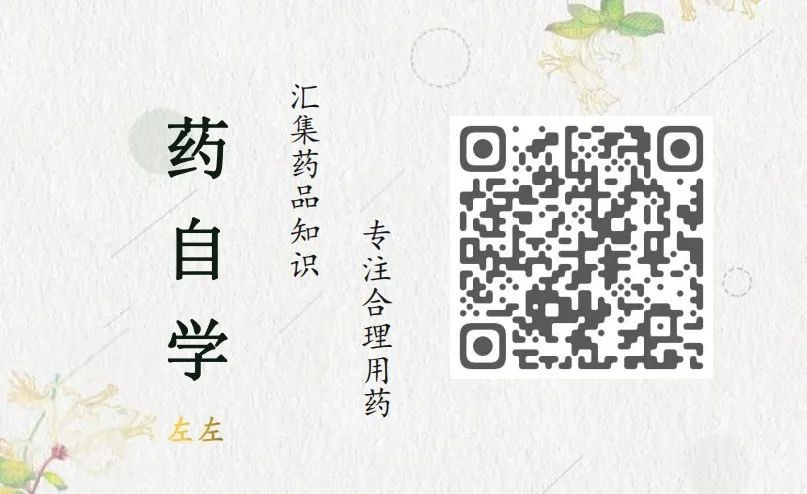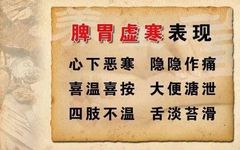
Do you have a habit of drinking iced beverages in summer? Have you seen people who gain weight just by drinking water? Have you heard of Irritable Bowel Syndrome?
In fact, these issues may be happening to you. The cold drinks you consume today, the air conditioning you sit under, the heat-clearing medications you take, and the crop tops you wear all leave their marks on your body.
This “mark” is called 脾胃虚寒 (Spleen and Stomach Yang Deficiency). Do you often experience the following symptoms? Please self-check:
Do you frequently have acid reflux, a poor appetite? Do you feel thirsty but have a bland taste in your mouth, with sweet saliva?
Do you feel bloated after meals, have indigestion? Do you experience dull stomach pain and prefer warm water?
Are your limbs often cold, more sensitive to cold than others? Do you feel swelling in your limbs, with soft flesh?
Do you have unformed stools, chronic diarrhea that doesn’t improve? Is your vaginal discharge excessive and watery, accompanied by a feeling of heaviness in the lower abdomen?
If you have more than three of the above symptoms, then “congratulations,” 脾胃虚寒 (Spleen and Stomach Yang Deficiency) is already approaching you…
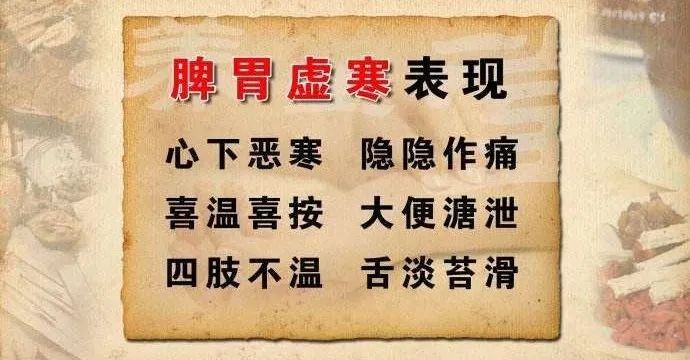
So, where does 脾胃虚寒 (Spleen and Stomach Yang Deficiency) come from?
On a hot summer day, having a cup of ice cream is such a delightful thing, yet some people get an upset stomach just from eating a slice of watermelon; others need to rush to the bathroom after a cup of ice cream.
In the hot summer, ice cream, iced milk tea, and cold watermelon have become favorites for many young people, especially for girls who find them irresistible.
Little do they know, various cold drinks and raw foods can easily damage the Yang Qi of the spleen and stomach, weakening the warming function of the middle jiao, leading to symptoms of deficiency and cold.
In the hot summer, walking into an air-conditioned room feels refreshing, but have you noticed: some people sneeze and have a runny nose as soon as they enter an air-conditioned room? Others feel uncomfortable in their stomachs and need to use the bathroom after staying too long in the air conditioning?
In fact, the prevalence of air conditioning has introduced a new ailment: 空调病 (Air Conditioning Disease).
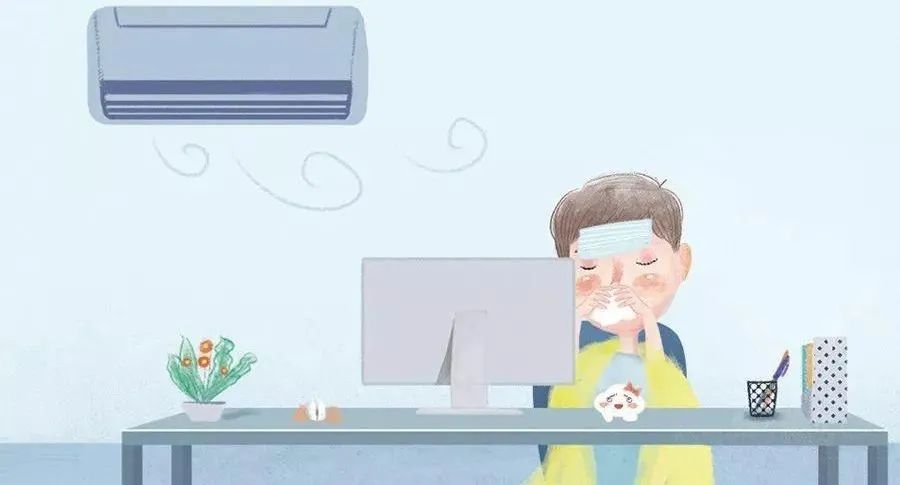
In hot weather, the body’s pores need to open to dissipate heat, but the cold air continuously blown by the air conditioning allows cold air to enter the body without any barriers.
Interestingly, while colds are more common in winter, many people catch a chill in summer, all due to air conditioning.
Crop tops, backless outfits, and ultra-short skirts—wow, aren’t they sexy? Aren’t they attractive?
However, look at the areas you are exposing; they are precisely the parts of the body most susceptible to cold: the spleen and stomach are close to the abdominal wall, lacking muscle and fat to protect them, making the abdomen particularly vulnerable to cold.
As the saying goes: “Wind enters from the back of the neck, cold arises from the soles of the feet,” indicating that the neck and feet are also the most susceptible to cold, with the neck and back being the location of the 督脉 (Du Meridian), which cannot tolerate cold.
Drinking some herbal tea to clear heat? 金银花 (Jin Yin Hua, Honeysuckle), 菊花 (Ju Hua, Chrysanthemum), 胖大海 (Pang Da Hai, Sterculia), 蒲公英 (Pu Gong Ying, Dandelion), 金线莲 (Jin Xian Lian, Rhizoma Callisiae) are often used to clear heat and reduce fire, and some people even drink them regularly as “tea.”
Little do they know, these herbs are mostly cold in nature, and cold herbs can deplete the Yang Qi of the spleen and stomach, leading to cold symptoms.
Moreover, most instructions for heat-clearing and detoxifying Chinese patent medicines clearly state: “Use with caution in cases of spleen and stomach Yang deficiency,” yet how many people understand that “if symptoms do not improve after three days of medication, seek medical attention” is meant to convey?
Additionally, the inflammation referred to in Western medicine can be summarized in four words in TCM: 红 (Red), 肿 (Swollen), 热 (Hot), 痛 (Pain). The common anti-inflammatory medications from a TCM perspective are cold in nature and similarly harm the spleen and stomach.
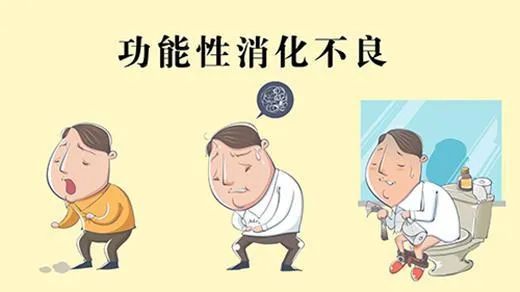
In TCM, there is a saying: “Movement is Yang, stillness is Yin.” Life is about movement because movement generates Yang; only through regular exercise can Qi and blood circulate and rejuvenate.
However, the lifestyle of modern youth is: taking a car when going out, shopping online, ordering takeout for meals, and lounging at home…
May I ask, will you still exercise? Long periods of inactivity will weaken the circulation of Qi and blood, leading to diminished organ function, and thus cold arises from within.
Whether intentionally or unintentionally, cold has finally entered your body through various channels. What does cold do when it arrives?
When cold evil lingers in the body, it disrupts the function of your organs, reducing their vitality and metabolism. Consequently, symptoms like indigestion, nausea, vomiting, abdominal pain, and diarrhea follow.
As the saying goes: “Three feet of ice does not form in a single day.” Over time, this leads to chronic gastritis, gastric ulcers, duodenal ulcers, functional dyspepsia, and Irritable Bowel Syndrome.
Because of weakened spleen and stomach function, even the water you drink cannot be metabolized properly, leading to obesity and edema. Those who gain weight just from drinking water are experiencing this.
Moreover, spleen and stomach Yang deficiency often accompanies kidney Yang deficiency, resulting in symptoms like soreness and coldness in the lower back and knees, cold limbs, especially cold lower limbs, or nocturnal diarrhea, clear and frequent urination, etc.
What should be done about 脾胃虚寒 (Spleen and Stomach Yang Deficiency)?
Irregular lifestyle, frequent late nights, consumption of raw and cold foods, and exposure to air conditioning can damage Yang Qi. 脾胃虚寒 (Spleen and Stomach Yang Deficiency) is not something that can be cured overnight like a cold; it requires careful regulation.
So, how can we regulate 脾胃虚寒 (Spleen and Stomach Yang Deficiency)?
Dietary therapy to dispel cold: 生姜 (Sheng Jiang, Fresh Ginger) is definitely a great remedy for dispelling cold; it can warm and promote the Yang Qi of the spleen and stomach. However, there are two types: fresh and dried ginger, with dried ginger being better at warming the spleen and dispelling cold and dampness. As the saying goes, “Radish in the morning, ginger at night,” so try to consume it in the morning.
Additionally, avoid cold-natured foods that can easily damage spleen Qi, such as 绿豆 (Lü Dou, Mung Beans), 豆腐 (Dou Fu, Tofu), 菠菜 (Bo Cai, Spinach), 空心菜 (Kong Xin Cai, Water Spinach), 茄子 (Qie Zi, Eggplant), 黑木耳 (Hei Mu Er, Black Fungus), 冬瓜 (Dong Gua, Winter Melon), 苦瓜 (Ku Gua, Bitter Melon), 西瓜 (Xi Gua, Watermelon), 香蕉 (Xiang Jiao, Banana), and 枇杷 (Pi Pa, Loquat).
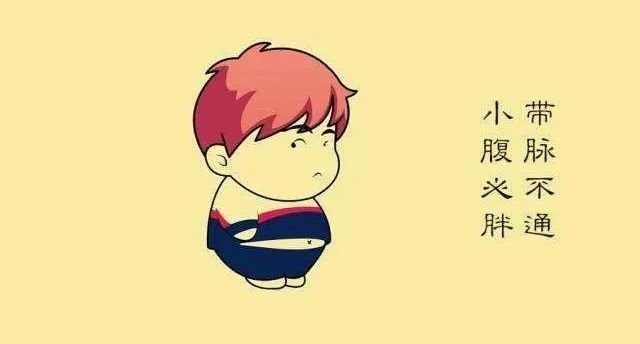
Tap the 带脉 (Dai Mai, Belt Vessel): The cold in the spleen and stomach centers around the abdomen, and the waistline is precisely where the 带脉 (Dai Mai) is located, which is one of the extraordinary meridians.
Some people may not be overweight elsewhere but have a belly; this is often due to weak spleen function leading to stagnation of water and dampness. Tapping the 带脉 (Dai Mai) can strengthen spleen Yang and invigorate the gallbladder meridian on both sides, quickly dispersing the water and dampness in the lower abdomen.
Chinese herbal remedies to consider: 理中丸 (Li Zhong Wan), 小建中颗粒 (Xiao Jian Zhong Granules), 黄芪建中丸 (Huang Qi Jian Zhong Wan), 桂附理中丸 (Gui Fu Li Zhong Wan), 附子理中丸 (Fu Zi Li Zhong Wan), 暖胃舒乐颗粒 (Nuan Wei Shu Le Granules), 温胃舒颗粒 (Wen Wei Shu Granules), 虚寒胃痛颗粒 (Xu Han Wei Tong Granules), 参芪健胃颗粒 (Shen Qi Jian Wei Granules), etc.
In TCM, it is essential to differentiate and treat based on symptoms; even if both cases are 脾胃虚寒 (Spleen and Stomach Yang Deficiency), the symptoms may vary, and the applicable formulas will differ, so do not take them indiscriminately.
 附子理中丸 (Fu Zi Li Zhong Wan), a good medicine for treating 脾胃虚寒 (Spleen and Stomach Yang Deficiency)For those with 脾胃虚寒 (Spleen and Stomach Yang Deficiency), this medicine should not be missedThe Chinese and Western medicines and formulas mentioned in this article should be used under the guidance of professionalsTCM enthusiasts can join the “Reader Group” on the public account homepage for communication and interaction
附子理中丸 (Fu Zi Li Zhong Wan), a good medicine for treating 脾胃虚寒 (Spleen and Stomach Yang Deficiency)For those with 脾胃虚寒 (Spleen and Stomach Yang Deficiency), this medicine should not be missedThe Chinese and Western medicines and formulas mentioned in this article should be used under the guidance of professionalsTCM enthusiasts can join the “Reader Group” on the public account homepage for communication and interaction